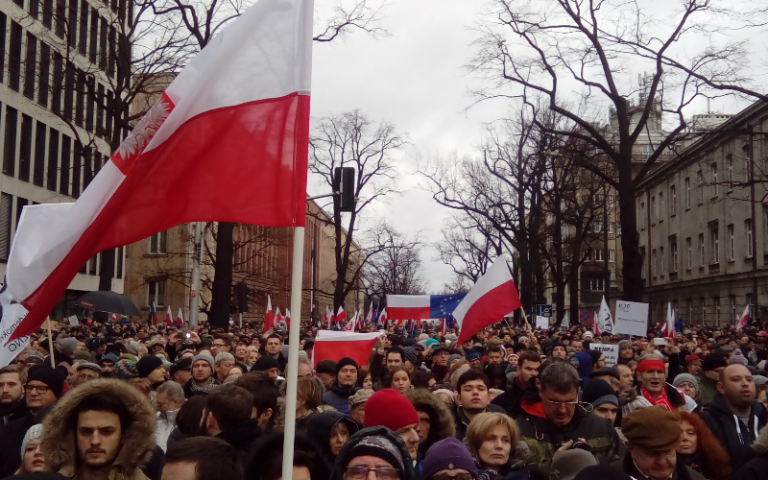The rule of law in Europe
29 June 2023, 9:00 am–5:30 pm

This workshop aims to advance understanding of the role of the rule of law in the European Union in relation to democratic backsliding.
This event is free.
Event Information
Open to
- All | UCL staff | UCL students
Availability
- Yes
Cost
- Free
Organiser
-
Dr Claudia Sternberg
This workshop is by invitation. If you wish to attend, please get in touch with Claudia Sternberg (c.sternberg@ucl.ac.uk).
PARTICIPANTS
- Dr Oliver Gerstenberg, Senior Lecturer, Faculty of Laws, University College London
- Dr Heather Grabbe, Visiting Professor, UCL European Institute, University College London | Senior Advisor, Open Society Foundations
- Dr Holger P. Hestermeyer, Co-Director of the Centre for International Governance and Dispute Resolution (CIGAD) and Professor of International and EU Law at The Dickson Poon School of Law, King's College London
- Dr Andi Hoxhaj, Lecturer (Teaching) in Law, Faculty of Laws, University College London
- Dr Ronan McCrea, Professor of Constitutional and European Law, Faculty of Laws, University College London
- Dr Aidan O’Neill KC (Scot) KC, Matrix Chambers
- Dr Michal Ovádek, Lecturer in European Politics, Department of Political Science, University College London
- Dr Charles F. Sabel, Maurice T. Moore Professor of Law, Columbia Law School
- Dr Eloise Scotford, Dean and Professor of Environmental Law, Faculty of Laws, University College London
- Dr Claudia Sternberg, Head of Academic Programmes and Principal Research Fellow, UCL European Institute, University College London
- Valeria Topalo, UCL LLB (Hons), Private Client Paralegal at DMH Stallard
- Dr Takis Tridimas, Co-Director, Centre of European Law and Professor of European Law, King’s College London
- Dr Johan van der Walt, Professor of Philosophy of Law, Faculty of Law Economics and Finance, University of Luxembourg
- Dr Marlene Wind, Professor and Director of CEP (Centre for European Politics) and Professor at iCourts, (Centre of Excellence for International Courts), Faculty of Law, University of Copenhagen
PROGRAMME
9:00-9:30 Welcome and introduction
Eloise Scotford, and convenors
9:30-11:00 Democracy, backsliding and diversity
- Marlene Wind: Thick vs. Thin: Why the EU needs a thick conception of democracy and the rule of law
- Heather Grabbe: How rule of law violations affect the functioning of the EU: member-state relationships and the Single Market
- Ronan McCrea: Political diversity and the rule of law in the EU
Chair: Claudia Sternberg
11:00-11:30 Coffee
11:30-13:00 Fundamental constitutional principles of a European democracy
- Takis Tridimas: Fundamental constitutional principles of a European democracy
- Johan van der Walt: Discussant
- Chuck Sabel: Discussant
- Chair: Oliver Gerstenberg
13:00-14:00 Lunch
14:00-15:30 Strategic litigation, primacy and judicial independence
- Aidan O’Neill KC: Strategic litigation in the shadow of Brexit
- Holger Hestermeyer: Questioning primacy: Where the Bundesverfassungsgericht went wrong and how to fix it
- Michal Ovádek: The making of landmark rulings in the European Union: the case of national judicial independence
- Chair: Ronan McCrea
15:30-16:00 Coffee
16:00-17:30 The external dimension, and closing discussion
- Andi Hoxhaj: The EU enlargement law in context
- Valeria Topalo: Art. 49 TEU and the situation in Moldova
- TBC: TBC
- Chair: Oliver Gerstenberg

 Close
Close

